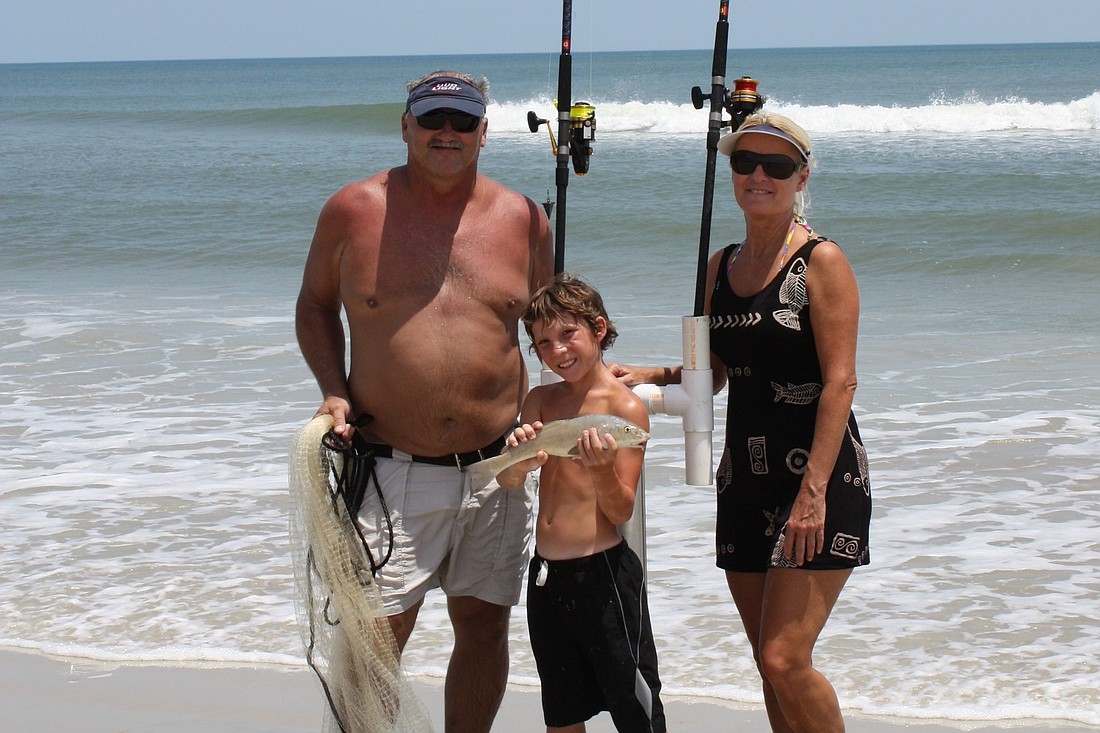- April 17, 2024
-
-
Loading

Loading

Fishing in the ocean from the beach looks like an easy, relaxing pastime. The fishermen often have their rods mounted in tubes in the sand, called “spikes,” while they loll under a beach umbrella or stand staring out to sea. It’s also not a difficult hobby to start, according to local fishermen, but there are a few tips that may help the beginner.
The necessary equipment begins with a surf rod and reel, which can be purchased together or separately. The rod is at least 9 feet long to allow for casting a decent distance out into the water.
(For more fishing stories, check out the columns by Rob Ottlein by clicking here.)
Bob Cyr, a retiree from Palm Coast who works a few days each week at Big Al’s Bait and Tackle of Flagler Beach, suggests also getting a tackle box, a container such as an ice box to hold the fish, a filet knife and pliers for hook removal. A leader line with hooks and a sinker are also needed. For hands-free fishing, many people get a spike. A pull-cart eases the task of carrying the equipment.
The big task for each outing is deciding which bait to use. Live bait is unnecessary because the long toss into the waves kills it anyway. Cyr said he prefers to use “recently deceased” baitfish because it stays on the hook better, but some fishermen cut up bait that has been frozen. Options include shrimp, clam and mullet.
Artificial bait and lures are also available.
Sand fleas are the cheapest bait because they can be found on the beach. They are the small crustaceans that bury themselves in the sand along the edge of the water. Unfortunately, they have been very difficult to find recently. Cyr theorized that the cold snap a couple of years ago killed them off and that they will eventually be back.
Fishermen often cast just past the breakers so the bait is over the sand bar where fish often wait for smaller fish.
Cyr emphasized that people should eat the fish they catch or throw them back into the ocean. “Don’t catch them just to catch them,” he said.
People should respect the environment and not leave anything on the beach, especially fishing line, said Joy Hill, spokeswoman for the Florida Fish and Wildlife Conservation Commission, Northeast region.
“Discarded fishing line is a killer in the water,” she said.
Cyr said sometimes a line will break when it is cast, and it’s not possible to retrieve it. To reduce the chances of that happening, he always uses a premium quality line.
A shoreline fishing license can be obtained for free at county tax collection offices, Hill said, or for a nominal fee at bait shops and some retailers that sell fishing equipment. Florida residents age 65 and over or under age 16 do not need a license.
When getting a license, Hill said, people should ask for the Salt Water Fishing Handbook, which contains rules and regulations on bag limits, size limits, etc. It also can be downloaded from the agency’s website, www.myfwc.com.
(For more fishing stories, check out the columns by Rob Ottlein by clicking here.)